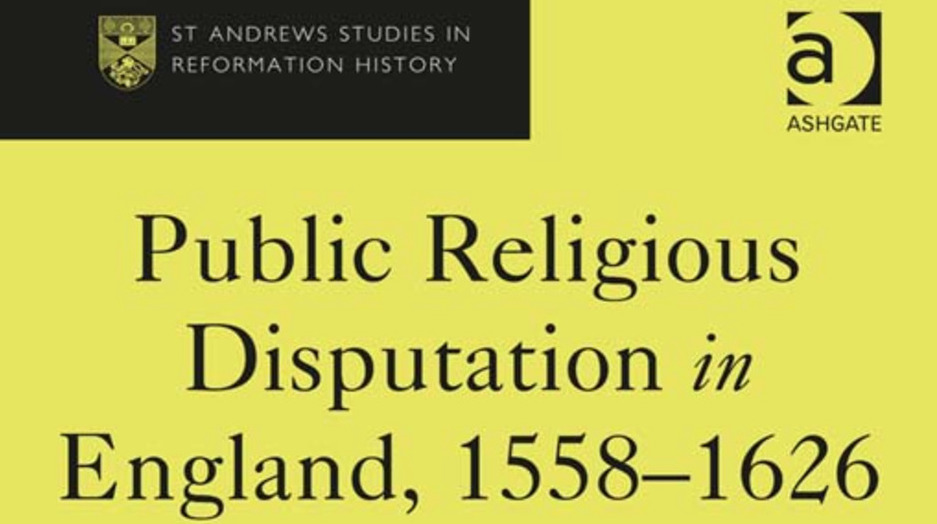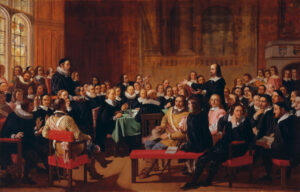Public Religious Disputation in England, 1558-1626. By Joshua Rodda (St. Andrews studies in Reformation history.) Pp x+241. Surrey: Ashgate, 2014. £70. 9781472415554.
Reviewed in the Journal of Ecclesiastical History 67 (2016), pp.656-7.
Building on the renewed scholarly interest in religious disputation in England over the last two decades, Joshua Rodda’s work impressively surveys a wide range of public religious disputation sources (counsels, conferences, legal procedures and prophesyings) and disputants (established church Protestants, Catholics, and puritans). The work modifies our view of the importance of disputation in the Elizabethan and Jacobean periods by challenging the previous scholarly assumption that disputation was merely an academic clerical practice and by arguing that disputation in this period was actually ‘a driving force behind all such interactions’ (p.18). Additionally, it illustrates how the ‘shared ideals’ of disputation functioned to unite various opposing groups—each of which were convinced that their pursuit of truth would be confirmed through religious debate (pp.5-6). Though disputation was ‘being defined and redefined’, throughout these years ‘these distinctions only reinforced [these] shared, central ideas’ (p.199). Rodda traces a shift in the purpose of disputation: while the aim of pre-1580 university debates was ‘the attainment of truth’, the purpose of later disputes was to persuade wavering individuals to convert to ones respective Church (p.202). Each of the chapters traces a feature of public religious disputation and substantiates the importance of disputation in this period. Chapter one demonstrates not only how disputation found its roots in Aristotle, the medieval period, and humanism, but also how universities ingrained in students the importance of attaining certainty and evading error through debate. While chapter two fruitfully explores the specific processes of disputation, chapter three examines the ways in which Protestant authorities controlled prison disputations in order preserve the established Church from the attacks of Catholic adversaries. This was done by not only adapting disputation procedures in an effort to aid Protestant disputants, but also by denying Catholic disputants the resources which they required to counter Protestant arguments. Chapter four analyzes the change in the purpose of disputation: a transition from its earlier goal—the pursuit of the confirmation of truth through disputation—to its later objective—the utilization of ‘truth’ to persuade and convert wavering individuals. Chapter five reveals how James I’s participation in a disputation disrupted the ‘ideals’ of a normal ‘free’ academic debate, since his arguments were unavoidably augmented by his monarchical authority (p.140). The final chapter traces a growing opposition to disputation and links this hostility with the rise of the Laudian regime. Building on previous scholarship, it shows how the 1620s witnessed a shift away from harsher polemical practices and affirms that this transition was fueled by Laudian preoccupations with Church unity. Though the bulk of the book focuses on debates in England, Rodda briefly discusses Continental disputes. A slight weakness of the work is that although it briefly draws out the use of patristic sources by Protestant and Catholic polemicists, this consideration seems somewhat cursory, given its importance as a prominent feature of religious debates in the Elizabethan and Jacobean periods. The emphasis of the work is also a bit lopsided since the majority of the book focuses on debates between Protestants and Catholics and less attention is given to intra-Protestant disputes. The work also lacks any explicit attempt to draw conclusions about the similarities or differences between Protestant-Catholic and intra-Protestants disputations. Notwithstanding these minor points, this work is an invaluable resource for any student or scholar wanting to understand the shifting and complex dynamics and purposes of public religious disputation in England.




